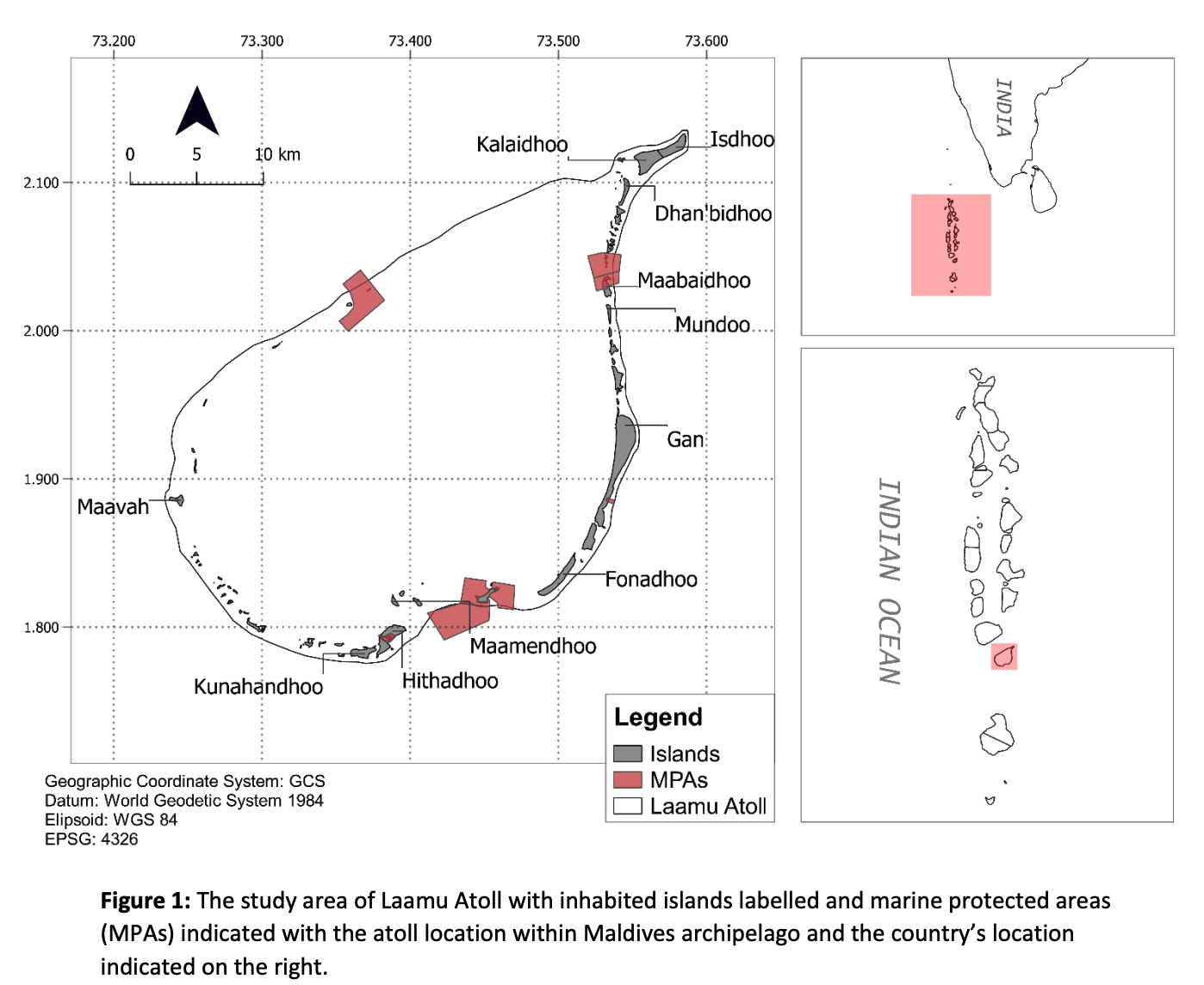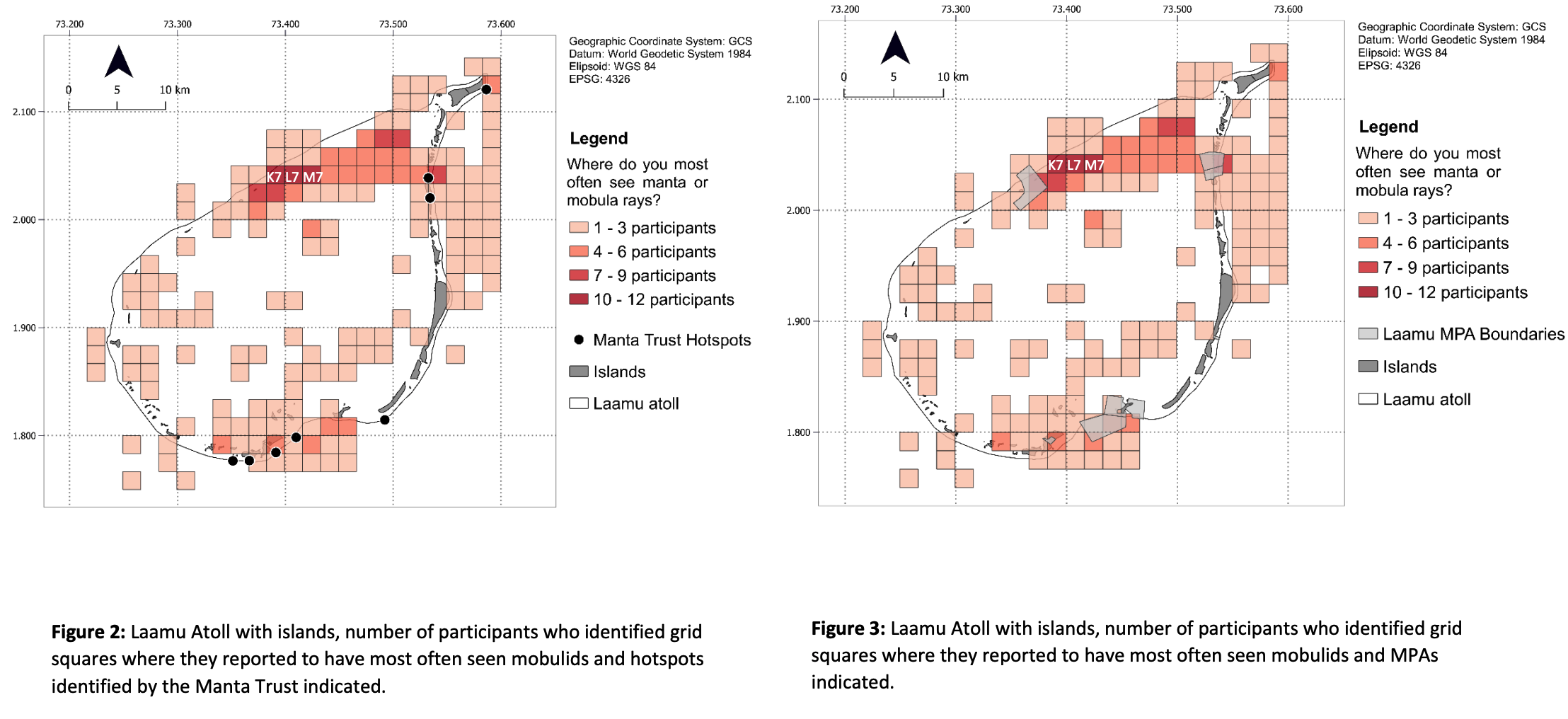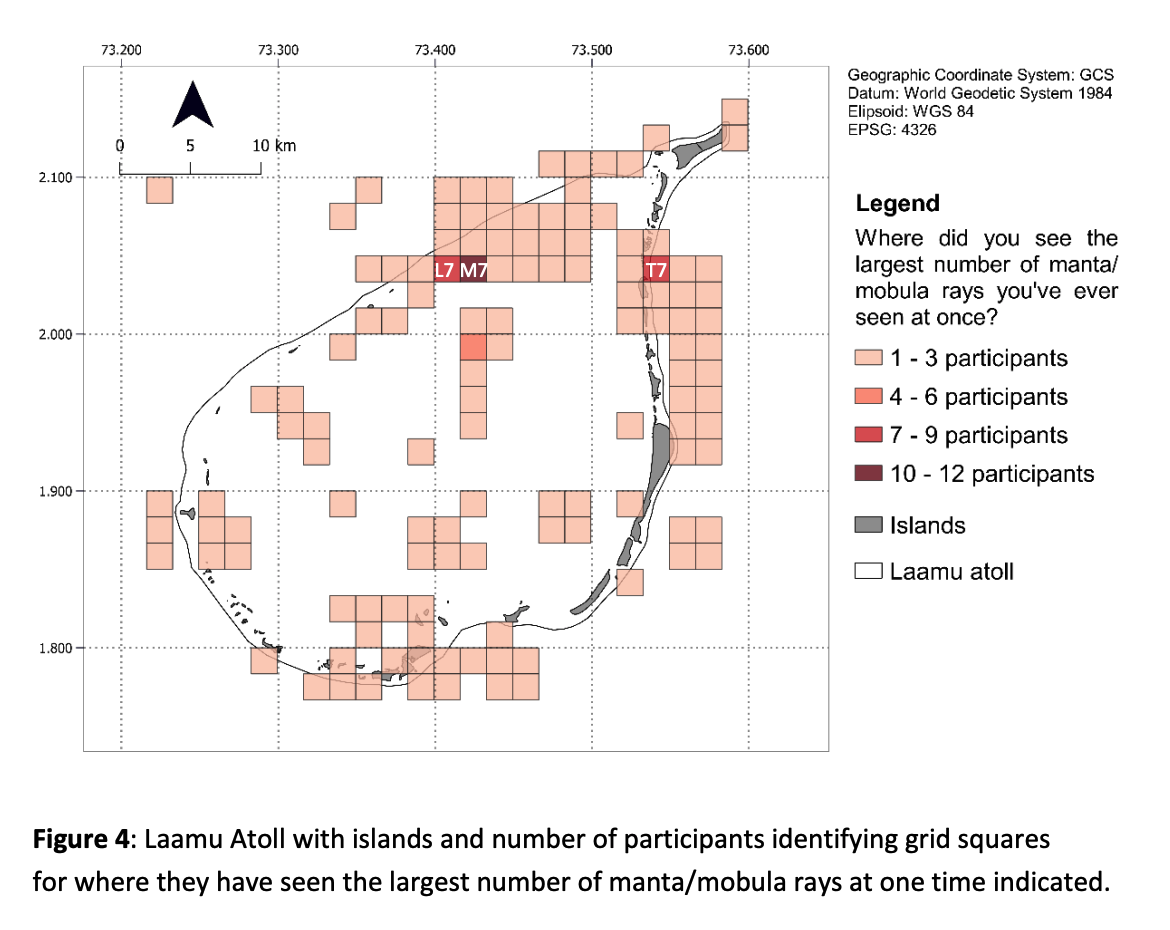The Use of Fishers’ Local Ecological Knowledge (LEK) in Mobulid Conservation, Maldives
2022
Hannah Cocks (MSc Marine Environmental Management - University of Exeter)
Keywords: Local Ecological Knowledge • Mobulids • Ethnobiology • Species Conservation • Social Science • Conservation Science • Fishers



Summary: Human impact on the environment calls for multidisciplinary conservation research. Local ecological knowledge (LEK) from fishers is increasingly used to supplement scientific knowledge (CSK) in species conservation. This study uses LEK from 123 fishers in the Maldives to map mobulid distribution, identify threats, and assess attitudes towards conservation. LEK complements CSK, highlighting a potential new research site and concerns about entanglement in fishing nets. Local attitudes are generally positive, making LEK a valuable resource for conservation strategy in data-poor areas.
Abstract
“The increasing impact of human activity on the environment has prompted a demand for multidisciplinary forms of research in conservation science that consider both social and environmental factors. Obtaining local ecological knowledge (LEK) from fishers via interviews is such an approach and is increasingly used in species conservation management to supplement and reinforce conventional scientific knowledge (CSK). This study explores the utility of applying LEK to mobulid conservation efforts in the Maldives. Data from 123 interviews with local fishers is used to map the distribution of mobulids in Laamu Atoll, identify potential anthropogenic threats they face and understand local attitudes towards conservation. The validity and scalability of the method is appraised by contrasting against CSK and considering more widespread application. By analysing the LEK, evidence was found for a potential new research site not previously considered as a prospective mobulid hotspot. Entanglement in bait fishing nets could indicate an activity of potential conservation concern for mobulids, and is recommended for further investigation by conservation bodies. Local attitudes towards mobulids and conservation efforts appeared to be mostly positive in Laamu Atoll, due to the tourism and economic benefits they bring. From these findings, it can be concluded that LEK complemented by CSK is a valuable resource for improving understanding of local ecology and attitudes and thus for recommending species conservation strategy. This offers a promising way forward for marine conservation management strategies in data-poor areas.”
Author Affiliations
University of Exeter
The Manta Trust
Maldives Underwater Initiative (MUI) by Six Senses Laamu
Maldives Manta Conservation Programme
